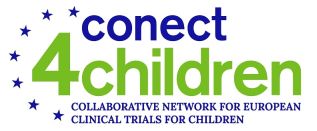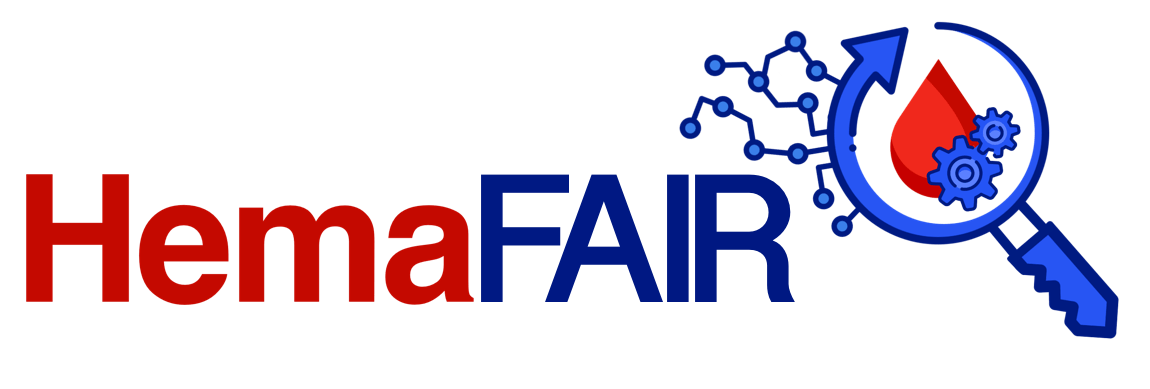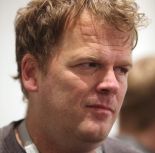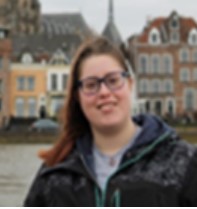Reusable health data
Data saves lives. In this research line, we strive to make health data Findable, Accessible, Interoperable and Reusable (FAIR). We develop and apply methods and policies regarding the input, storage and utilization of health data and knowledge. Additionally, we make agreements for when the data is understandable. One of our focus areas is the care for individuals with rare diseases.
Projects

c4c (conect4children) is a large collaborative European network that aims to facilitate the development of new drugs and other therapies for the entire paediatric population. It is a pioneering opportunity to build capacity for the implementation of multinational paediatric clinical trials whilst ensuring the needs of babies, children, young people and their families are met.
c4c is committed to meeting the needs of paediatric patients thanks to a novel collaboration between the academic and the private sectors, which includes 35 academic and 10 industry partners and around 500 affiliated partners. c4c endeavours to provide a sustainable, integrated platform for the efficient and swift delivery of high quality clinical trials in children and young people across all conditions and phases of the drug development process. The project strives to bring innovative processes to all stages of clinical development by generating a new model of organization and of the clinical development process.
Research line: Reusable health data
Staff: Nirupama Benis, Ronald Cornet
Website: conect4children

Today, around 7000 rare diseases affect more that 300 million people worldwide. The majority of rare and ultra rare diseases still lack a therapeutic option. To address these important issues, the European Rare Diseases Research Alliance (ERDERA) has been set up to build on the advancements made by former EU-funded projects.
ERDERA will continue developing a robust and comprehensive data and expertise infrastructure and innovative clinical research services -with a focus on advanced therapies-, funding new research projects, providing training and expediting translation of findings into tangible solutions for patients.
Research line: Reusable Health Data
Staff: Nirupama Benis, Ronald Cornet, Andra Waagmeester, Noah van Brummelen

The HemaFAIR project, established through international expert collaborations, aims to enhance the scientific profile of The Cyprus Institute of Neurology and Genetics (CING) and improve the position of Cypriot researchers in biomedical informatics and rare hematological diseases with a focus on the use of FAIR data and standards in research and education.
The project will involve a comprehensive training programme and capacity-building and networking activities such as summer schools, workshops, webinar and transferable skill lectures taught by experts in rare hematological diseases, biomedical informatics, ethics and regulatory issues. In addition, HemaFAIR will raise the profile of early-career researchers via the development of a mentoring programme, short term staff exchanges and collaborative research projects between EU partners and the CING.
Through a pilot study, it will demonstrate the FAIRification process on two platforms for haemoglobinopathies—rare hematological diseases particularly prevalent in Cyprus—maximizing the project's impact on the local community.
Research line: Reusable health data
Staff: Ronald Cornet, Martijn Kersloot
Website: HemaFAIR

The LEARN-FAIR project intends to foster cooperation and knowledge exchange among FAIR (Findable, Accessible, Interoperable, and Reusable data) trainers by establishing a Dutch FAIR Trainers Community. Additionally, the project focuses on identifying training needs for researchers and data stewards, as well as existing educational materials, in order to develop new Open Educational Resources. To ensure that these materials meet the (future) needs of the community, the LEARN-FAIR project combines empirical research with active community engagement.
Research line: Reusable health data
Staff: Ronald Cornet, Martijn Kersloot, Myrthe van Heerde
Website: LEARNFAIR
Similar to the NICE FAIR project, in this project we test the feasibility of Federated Learning (FL), a decentralized machine learning technique. It is a potential solution to the question: "How can we analyze health data without needing to gather that data centrally?".
We will test FL in the context of NICE’s benchmarking activities, which compares mortality rates of all Dutch ICUs based on the APACHE IV case-mix adjustment. We will examine the performance of NICE's yearly APACHE IV recalibration when calculated centralized (current practice) versus decentralized (FL) and investigate its effect on the position of ICUs in funnel plots. This decentralization is recreated virtually, by creating partitions of the NICE's database, simulating separate hospital databases.
This project should result in a first assessment of the use of FL as a decentralized data analysis method for the NICE, opening the door for further research and benchmark opportunities.
Research lines: Quality of Care (IT Systems) & Reusable Health Care
Staff: Ferishta Raiez, Sebastian van der Voort, Ronald Cornet, Nicolette de Keizer

PaLaDIN aims to accelerate the development of effective treatments and to establish best-practice diagnosis and care for neuromuscular disease patients worldwide by harnessing patient input and patient-generated health data to improve decision making, outcomes and healthcare solutions. To this end, PaLaDIn will develop and operate a collaborative, inclusive system that collects patient-reported outcome and experience measures, and aligns these with clinical data to advance treatments, diagnosis, and care by providing holistic, patient-level data.
Research line: Reusable health data
Staff: Nirupama Benis, Ronald Cornet, Martijn Kersloot, Lilli Schuckert
Staff involved














